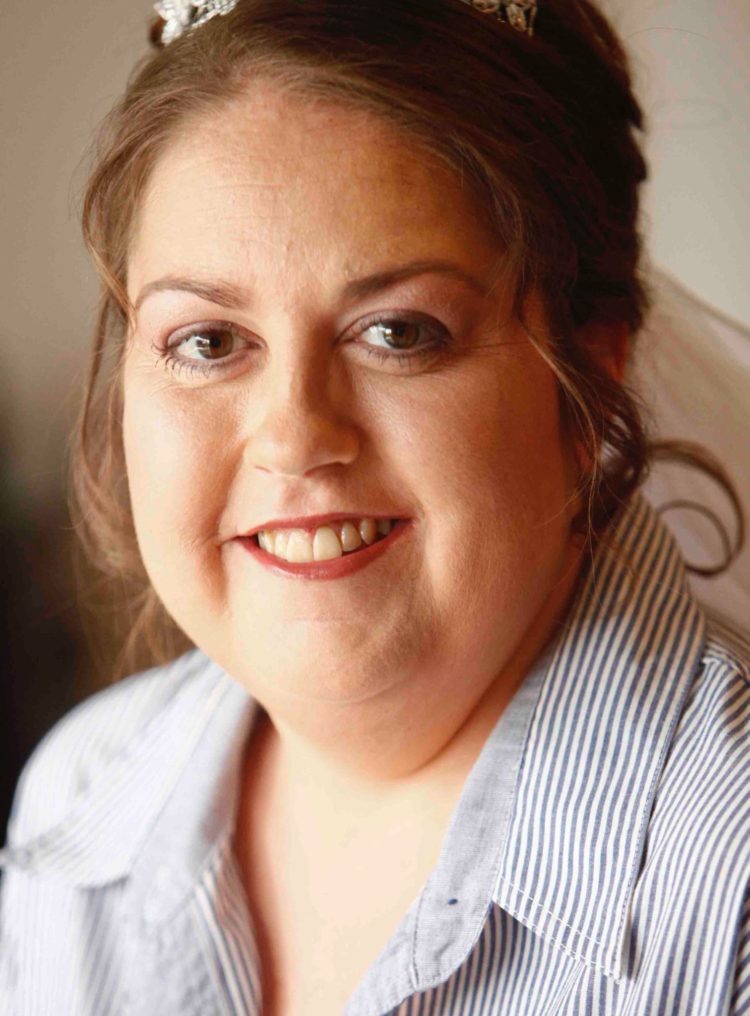What does a day in the life of a thermal performance assessor look like?
Today I catch up with thermal performance assessor Rebecca Robins to chat about what it takes to excel as an assessor in today’s industry.
Rebecca is the Managing Director of Efficiency Assessments and is one of the moderators in the Thermal Performance Assessment Facebook group so I thought it would be great to find out more about Rebecca and why she has taken up a career as a NatHERS Assessor.
Michael Young: Tell us about yourself?
Rebecca Robins: My name is Rebecca and I live in Bowral, in the Southern Highlands of NSW. I live with my husband and a dog and a cat. The animals are in charge of course.
Our house is self-designed in a courtyard style and energy efficient achieving about 8 NatHERS stars. The practical performance matches the theoretical outcomes as it maintains a fairly comfortable temperature year round with minimal heating and cooling, despite the cold climate of the highlands.
I have predominately worked in the NatHERS industry but have, at times, combined it with other careers including Retail work, Town Planning roles with Councils and in Technical and Management roles with ABSA.
I own and operate, Efficiency Assessments, one of the oldest continually operational, NatHERS-based, building sustainability consultancy, in Australia. I established the business in 1997 only conducting NatHERS Assessments. Since then, the business has grown substantially and is now family owned and operated. The additional capacity provided by my family has allowed us to include other services related to NatHERS.
MY: What got you into thermal performance assessments?
RR: I actually fell into thermal performance a bit by accident. I helped my father type up one of the first Energy Efficiency policies in NSW for Camden Council LGA as in those days the professionals did not do the typing! Then, once the policy was introduced, I was retained as a NatHERS Assessor for Council to advance the policy. In this capacity, I worked with the Council in conjunction with Prof. John Ballinger (one of the forefathers of NatHERS) to help set the star bands ranges for the software.
I had an early interest in energy efficiency from some projects I had completed in high school, but my career ambition was ‘Architect’, not NatHERS Assessor. It wasn’t even a real career back then!
MY: What is your main focus with your assessment work?
RR: When I first started, I only conducted NatHERS Assessments. In the last 23 years I have rated all types of dwellings from single dwellings to huge multi dwelling unit buildings and complexes. The company now has multiple interests in the building sustainability sector including:
- Residential compliance, using NatHERS, with a focus predominately on residential single dwellings and dual occupancies with a few multi-dwelling projects here and there.
- NSW BASIX Assessments using NatHERS to model Thermal Comfort.
- Detailed residential thermal analysis
- Active energy-use advisory services
- Commercial Section J Assessments
- Advice and research to government & industry
- Policy and document creation and review
- Assessor support including general assistance, peer review/QA, mentoring, CPD and workshops
Personally, I work more predominately on detailed thermal analysis, research, policy and assessor support.
MY: What courses did you do to get to where you are?
RR: The funny thing about my training is that very little of it relates directly to the Thermal Performance field. The other strange thing is that most of the required NatHERS qualifications have been obtained after applying the knowledge rather than as a consequence of learning it. The majority of my learning has been through experience, rather than formal education.
I hold the following qualifications:
- Bachelor of Urban & Regional Planning
- NatHERS Training Course (NatHERS)
- Short Course in Residential Building Performance Assessment (RBTPA) (AccuRate, BERSPro, FirstRate5)
- Certificate IV in Architectural Technology (Residential drafting)
- Certificate IV in NatHERS Assessment (AccuRate, BERSPro, FirstRate5
In addition, I have studied some modules from Architecture, Commerce, Education and Information Technology degrees and courses.
MY: What does a typical day look like for you?
There is no such thing as a typical day in my world. My job is wide and varied and my days are always different. In the early days, as a sole trader focused just on NatHERS Assessments, it was mostly about prioritising and getting out as many assessments as possible, with a few basic accounting and business tasks thrown in. In quiet time advertising and client engagement took a greater priority.
Now, it is still about prioritisation but involves balancing a complex myriad of management, client liaison, assessment, reporting, support and other tasks.
Usually there appears to be far less time in a day than anticipated. I try to concentrate on the ‘have to be done’ category of tasks and doing preparation work for upcoming days. I try to leave a few hours for ‘items that come up’ as there is always a client to talk to, an accounting issue to deal with or some other task requiring my attention.
MY: The best thing about working as a thermal performance assessor is…
RR: Using my knowledge to help others. Whether that be through analysis to minimise energy use, explaining how a building operates or by directly assisting another assessor, giving assistance makes me happy. The flexibility allowed by the way I have set up the business, facilitating flexibility around the other commitments in my life isn’t a bad bonus.
MY: What are you currently working on?
I am currently working on developing some CPD modules for Assessors and a government research project.
As I now operate a company with multiple staff, we continue to deliver our residential and commercial rating services.
MY: What are your plans for the future?
RR: My plan is to continue grow the assessor support side of the business with a emphasis on CPD that teaches Assessors more about why, not just how, the software works, to help expand and develop key skills, and assist in learning how to apply that new knowledge to NatHERS ratings.
My key objective is to help build the reputation of the industry, so Assessors are recognised as valued industry professionals. I hope to ensure that Assessors know more than just how to enter data into the software. In addition, I believe in delivering topics requested by Assessors. If you want to know more about something, I hope to be able to help you out.
My support philosophy goes beyond just training how to enter data into NatHERS and is centred around developing Assessors’ knowledge by addressing the following:
- Developing sound systems to ensure correct and consistent data entry
- Understanding how the software (and engine) works
- How to apply the NatHERS software to real life situations
- How to apply the multiple Australian building energy efficiency regulations
- Understanding how the building works and relating that to knowledge of building passive function
- How to analyse your results and offer suitable solutions
- How to apply various technical and building regulations when using NatHERS
- Developing sound cost effective, buildable solutions to clients
- Understanding building techniques applicable to the industry
- Knowing industry based terminology that may vary from client type to client type or between professionals.
- Topics including building, products and installation techniques
- Other topics of interest such as working from home, managing a small business, working from home, time-management, small business development, the history of NatHERS, changing software and more.
- Any other topics that are suggested by Assessors.
MY: If you could give someone who was thinking about working as a thermal performance assessor some advice – what would it be?
RR: There a few ideas I have that may be useful for potential assessors:
- Research what the true cost of the business is and the availability of work in the field.
- Think about your services and if you are not just qualified, but experienced enough to offer those services
- Decide what your business will look like. Will it be NatHERS only or will this training supplement your current career.
- Stay in touch with your clients and tailor your communication strategies for each one.
- Don’t consider completion of your Certificate IV in NatHERS Assessment, completion of your training. You will learn much more through doing the job and researching as you go than you will in the Certificate IV.
- Keep growing your knowledge. Keep reading, studying and researching.
- Make sure you understand why your software produces the results it does. Ensure you can explain this to your clients.
- Seek guidance from more experienced Assessors.
- Consider peer reviews on your initial work and use the feedback as a learning experience. You might not make much money but will gain important skills for the future.
- Ask questions. There is no such thing as a stupid question.
- Undertake some other courses or subjects to increase your knowledge of the building process, sustainability, products, installation and more. (The drafting course I did was invaluable)
- Do some training in AccuRate, even if you will never use it in practice. It gives you a great overview of the capabilities of the Chenath Engine
- Don’t overstretch yourself or expect too much at the start. There is much more to running a business than just knowing how to use a software package. Start slow, work alongside your current job until you feel comfortable enough with your new career, then, take the leap….
MY: Thanks Rebecca for taking the time to chat and tell us all about what is happening in your world.
RR: It’s been my pleasure Michael
You can find out more about Rebecca and what she does at Efficiency Assessments or hit her up with some questions in the Thermal Performance Assessment Facebook Group.






